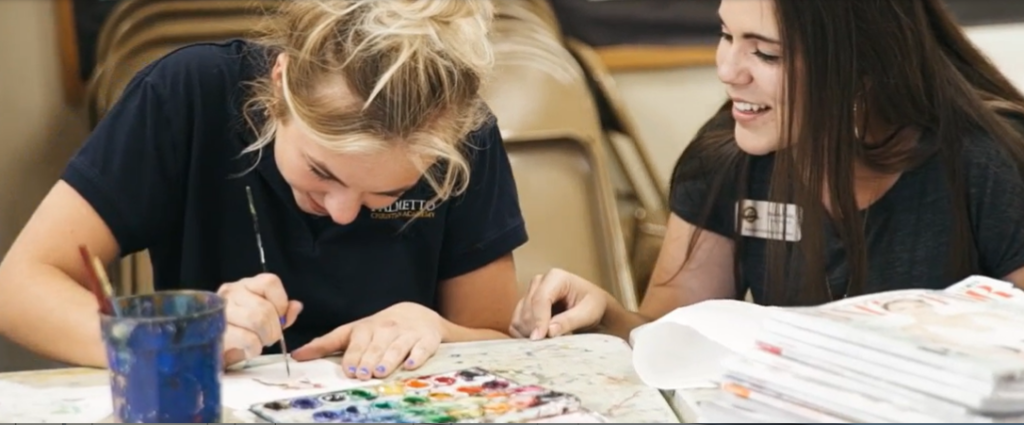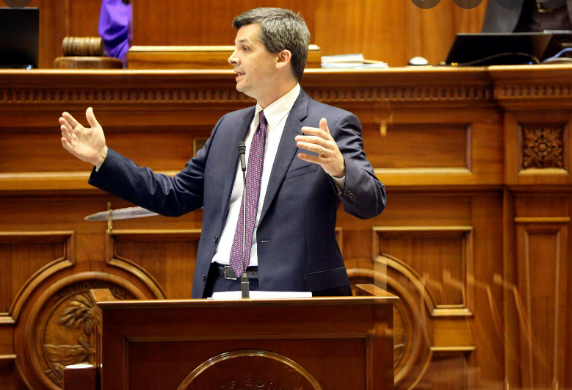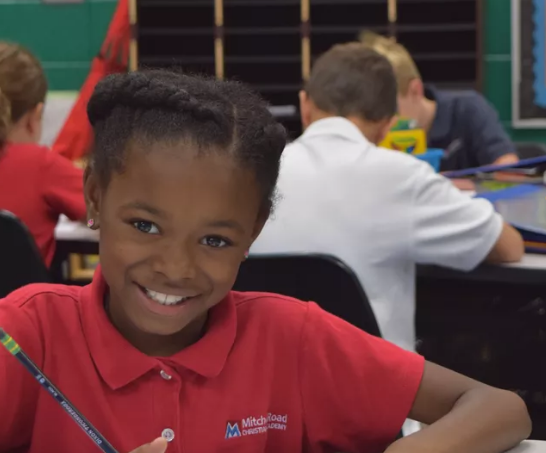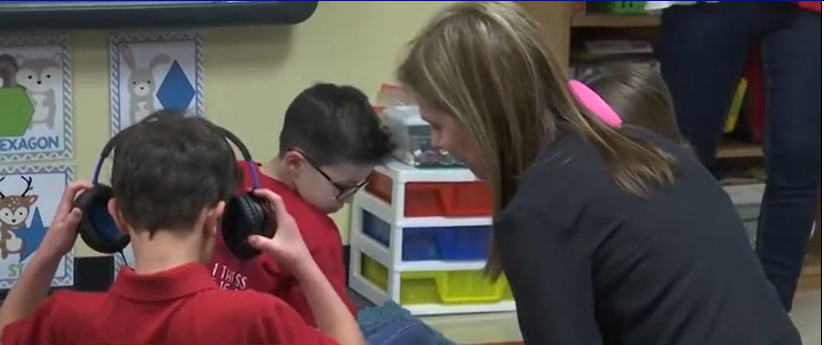The Japanese art of pottery, kintsugi, uses gold in the process of reconstituting something broken. Rather than attempting to conceal the repair, kintsugi makes something new and even more beautiful than the original. Author Jay Wolf notes a spiritual lesson:
The story of kintsugi — this style of pottery — may be the most perfect embodiment of all our trauma-shattered lives... Instead of throwing away the broken beloved pottery, we’ll fix it in a way that doesn’t pretend it hasn’t been broken but honors the breaking—and more so, the surviving — by highlighting those repaired seams with gold lacquer. Now the object is functional once again and dignified, not discarded. It’s stronger and even more valuable because of its reinforced, golden scars.
South Carolina choice supporters have suffered a trauma in a recent ruling striking down the state’s Education Scholarship Account program. In an absurd 3-2 ruling, the majority found that the ESA program violated language in the South Carolina Constitution prohibiting “direct” state funding to private schools. ESA funding goes to a parent-directed account, which has numerous educational uses other than private school tuition. The Arizona courts, for example, recognized this distinction between ESAs and vouchers when choice opponents made a similar challenge in the Grand Canyon State. From the unanimous Appeals Court decision (which the Arizona Supreme Court later refused to reconsider):
The ESA does not result in an appropriation of public money to encourage the preference of one religion over another, or religion per se over no religion. Any aid to religious schools would be a result of the genuine and independent private choices of the parents. The parents are given numerous ways in which they can educate their children suited to the needs of each child with no preference given to religious or nonreligious schools or programs. Parents are required only to educate their children in the areas of reading, grammar, mathematics, social studies, and science.
Where ESA funds are spent depends solely upon how parents choose to educate their children. Eligible school children may choose to remain in public school, attend a religious school, or a nonreligious private school. They may also use the funds for educational therapies, tutoring services, online learning programs and other curricula, or even at a postsecondary institution.
The specified object of the ESA is the beneficiary families, not private or sectarian schools. Parents can use the funds deposited in the empowerment account to customize an education that meets their children’s unique educational needs.
Thus, beneficiaries have discretion as to how to spend the ESA funds without having to spend any of the aid at private or sectarian schools.
South Carolina students deserved a Supreme Court majority which would have recognized the soundness of this thinking. As an alternative, South Carolina choice supporters should emulate the actions of their Grand Canyon State peers in performing school choice kintsugi. It was the loss of two small voucher programs, one for students with disabilities, the other for foster care students, that inspired the creation of the nation’s first account-based choice program. Lawmakers from across the country obviously appreciated the beauty of Arizona’s kintsugi choice program, as it has been widely emulated.
While the loss in the South Carolina Supreme Court leaves thousands of families in limbo, Palmetto State lawmakers should seize the kintsugi opportunity. Judges would have to engage in truly absurd mental gymnastics to find a version of Oklahoma’s Parental Choice Tax Credit to be “direct” aid. What Oklahoma lawmakers created lawmakers in South Carolina can optimize and perfect. A perfected Oklahoma style credit could be even more robust and indeed more beautiful than the ESA program. Beauty, as Dante observed, awakens the soul to act.

Palmetto Christian Academy in Mount Pleasant, SC, is one of 419 private schools in the state serving 68,110 students.
Editor’s note: This commentary from Jonathan Butcher, the Will Skillman senior research fellow in education policy at The Heritage Foundation, is an exclusive to reimaginED.
Shelricka Burnside is a single mother of three, so she is well acquainted with life’s challenges. She can recognize problems even from afar and wants desperately to help her children avoid them.
Burnside told the Palmetto Promise Institute in South Carolina, “The statistics show that black males a lot of times tend to drop out of school,” which is now her concern for her 9-year-old son. Understanding that learning values about faith and family at a young age will be essential for him, she adds: “That’s going to help him throughout life.”
Parents like Burnside now can celebrate the opportunities available to thousands of students across the U.S. this year because state lawmakers made them eligible for education savings accounts. South Carolina has become one of more than a half-dozen states where policymakers created or expanded parent options in K-12 education this legislative session through education savings accounts or account-style learning options.
South Carolina’s accounts will be available to children from families with household income levels less than or equal to 200% of the federal poverty line in 2024-25 (equivalent to approximately $60,000 for a family of four). Eligibility will expand in 2025-26 to 300% of the poverty line and again in 2026-27 to students in households earning up to 400% of the poverty figure. Students must be attending a public school in the year they apply for an account.
Similar to the accounts in Arizona and Florida, South Carolina officials will deposit a portion of a student’s spending from the state education formula into a private account that parents use to buy education products and services for their children. Families can buy textbooks, hire personal tutors, find education therapists, pay tuition at a private school, and more, in any combination they choose.
Parents got another glimpse of the problems on the horizon for young children last week with the release of national test scores for eighth graders in history and civics. Results released last October on the Nation’s Report card found the largest drop in history in math scores between test administrations with corresponding declines in reading. In history and civics, student scores have dropped back to levels not seen since the mid-1990s. They have lost more than a generation’s worth of progress.
The math and reading results point to problems for a student later in their education career and perhaps even affecting their job prospects. But the sinking history and civics scores foreshadow tears in any remaining sense of national identity Americans may share after the shredding caused by COVID and the social upheavals in recent years.
Taxpayers and families’ confidence in schools and government services has worn thin after the pandemic, and we are looking for something on which to set our hopes for the future. Ignorance about our past and the sacrifices that it took to arrive at this point in history are not reassuring.
Some 60 years ago, the essayist E. B. White wrote, “If democracy is going to save its skin, it had better hustle.” Indeed.
Parents like Shelricka Burnside already are motivated to move quickly, and now more state policymakers are catching up. Allowing families to choose how and where their children learn not only can satisfy those justifiably frustrated by assigned schools’ bureaucracy and seemingly routine parade of disappointing results.
It also can hem together the lining of freedom and virtue, our permanent institutions, which allow us to find meaning in the living and working and striving Americans do each day.
Parents hold their children in their thoughts because they are special to them. We have to remember to hold America in our thoughts, too, “like holding a love letter,” White says, because “it has so special a meaning.”
Let’s put this in the mail to the next generation.

South Carolina Senate Majority Leader Shane Massey, who chaired numerous subcommittee hearings on the education choice bill, called the elimination of a requirement that scholarship recipients take the same end-of-course tests as traditional public school students a “deal breaker” for him.
Editor’s note: This article appeared today on thestate.com.
After roughly two decades of fruitless deliberation over voucher programs, South Carolina lawmakers appeared finally to be on the verge of expanding school choice this year.
The House and Senate, energized by a wave of frustration over pandemic-era education policies, passed companion bills to establish a scholarship fund that select parents could tap for their children’s educational expenses, including private school tuition.
Republican lawmakers were in broad agreement that low-income children whose needs were not being met by public schools should be afforded their choice of private education options on the public dime. It was just a matter of deciding how best to smooth out the differences between the House and Senate plans to accomplish that.
The House favored a three-year pilot program that would take $75 million from the state’s contingency reserve fund to provide annual $5,000 scholarships to 5,000 low-income elementary-age students. The Senate wanted a permanent program open to a larger, but still limited number of K-12 students who were Medicaid-eligible or had an individualized education plan.
Under the Senate plan, parents could use money earmarked for K-12 public schools — $6,000 annually per scholarship recipient — to pay for a variety of educational expenses.
The joint panel tasked with hammering out a compromise voucher bill was optimistic its report would be adopted, as such reports often are, but their plans hit a fatal snag when lawmakers returned to Columbia last week for a one-day special session to finalize the budget and resolve differences between competing versions of adopted bills.
The compromise voucher bill passed the House without discussion and had enough support to clear the Senate also, but never got a vote in the upper chamber. The Senate’s decision to adjourn without voting on the bill effectively killed it for the year.
“Voucher Bill DEAD!” Sen. Mike Fanning, a Fairfield Democrat and ardent school voucher opponent, triumphantly tweeted moments after the Senate adjourned last week. “HUGE News!”
To continue reading, click here.

Mitchell Road Christian Academy in Greenville, South Carolina, strives to partner with Christian parents to equip children to become ambassadors for Christ through academic excellence and an integrated biblical worldview. Mitchell Road graduates ranked in the top 10% nationally in standardized testing last year; 98% were placed in honors or AP classes in high school.
After two decades of defeat, South Carolina education choice advocates claimed victory late Tuesday after the state House of Representatives passed its version of a bill that would give choice to low-income students, students with special needs, and military families.
“This vote marks a major milestone on a 20-year journey to give South Carolina children the same hope and opportunity their peers in states like Florida have had for decades,” said Ellen Weaver, president and CEO of the Palmetto Promise Institute, a conservative think tank that has advocated for education choice.
Weaver is also one of six candidates seeking the Republican nomination for the state’s superintendent of education.
The Senate version of the bill, SB935, approved March 30 on a 25-15 vote, would give qualifying kindergarten through eighth grade students $5,000 a year to spend on private school tuition, fees, books and other expenses that differ from the House bill. Recipients who opt to attend another public school outside their attendance zones could use scholarships for transportation.
The House bill makes the program a three-year pilot. Initial funding, which is expected to cost up to $75 million over three years, would come from the state’s reserve contingency fund.
House members voted 66-38 to approve the amended bill.
Under the House version, students who qualify for Medicaid or the federal Children’s Health Insurance Program would be eligible for scholarships, as well siblings who meet the other qualifications. Except for students entering kindergarten or first grade, participants must have attended a public school at least one year within the past three years to be eligible.
The bill allows up to 500 children of active-duty military parents to participate as well as up to 500 students enrolled in the state’s early reading development and education program for 4-year-olds deemed at risk for not being ready for kindergarten.
The program would be capped at 5,000 students. If more than 5,000 students apply, awards will be determined by lottery.
The House vote drew strong opposition from Democrats, who filed 20 amendments, all of which failed.
“I think it’s a slippery slope,” said state Rep. Russell L. Ott, D-St. Matthews, who said he feared a choice program would result in “the demise of public education” in South Carolina. “I don’t know how we put this genie back in the bottle and that’s what’s scares me.”
He and other opponents said the state should instead increase funding to public schools by raising the per-pupil allocation.
State Rep. Shannon Erickson, R-Beaufort, who introduced the amended bill on the floor Tuesday night, said it is a response to parents’ demand for choice, which grew stronger during the pandemic shutdowns.
“While virtual school would have worked for some, we heard loud and clear that parents want options,” she said. “This is a data-driven choice pilot program for three years. Parents have asked for options, and I think they deserve for us to let them see if it works.”
Erickson pointed out that the program also opens up choice within public schools, which do not have open enrollment, and would let parents who commute for work across county lines enroll their children in public schools close to their jobs if they prefer to stay in the public system.
“We’re trying to bring people education opportunities they may not have known they had because they are tied, almost super-glued, to a ZIP code,” she said.
A conference committee will iron out differences in the two bills and bring the reconciled version back for final approval before it is sent to Gov. Henry McMaster. A supporter of education choice, McMaster is expected to sign the legislation, which would take effect during the 2022-23 school year.
In a statement released after the vote, Weaver of the Palmetto Promise Institute said studies of school choice programs indicate the programs have been proven to improve education across the board.
“The real-world research is clear: Choice creates an environment that promotes new professional opportunities for teachers and elevates the education of all children, wherever they learn,” she said. “Today, we are one step closer to empowering Palmetto State parents with the education freedom they need to make the best decision for their child.”

South Carolina Lt. Gov. Pamela Evette, right, toured Myrtle Beach Christian Academy recently in recognition of School Choice Week, thanking administrators for keeping the school open during the pandemic.
Editor’s note: This article appeared last week on wbtw.com.
Legislation that proponents say would create more financial opportunity for families to send their kids to private school has advanced in the South Carolina Senate.
The bill would establish Education Savings Accounts, marking one of the first times public money could be spent in the private school sector.
The ESA program would allot qualifying families a certain amount of taxpayer money they could then spend on private school tuition or other educational means outside the public school their child is zoned for.
“In order to ensure true choice, we believe the Education Saving Program must ensure that a family that receives ESA dollars is able to access a private school setting of their choice regardless of their child’s academic ability, their disability status, or their demographic profile,” Patrick Kelly, the director of governmental affairs for the Palmetto State Teachers Association said.
The PTSA supports school choice legislation.
Katherine Cannon is the head of school at Myrtle Beach Christian Academy. She says while the school offers tuition assistance, the ESA program would expand eligibility to more lower-income families.
To continue reading, click here.